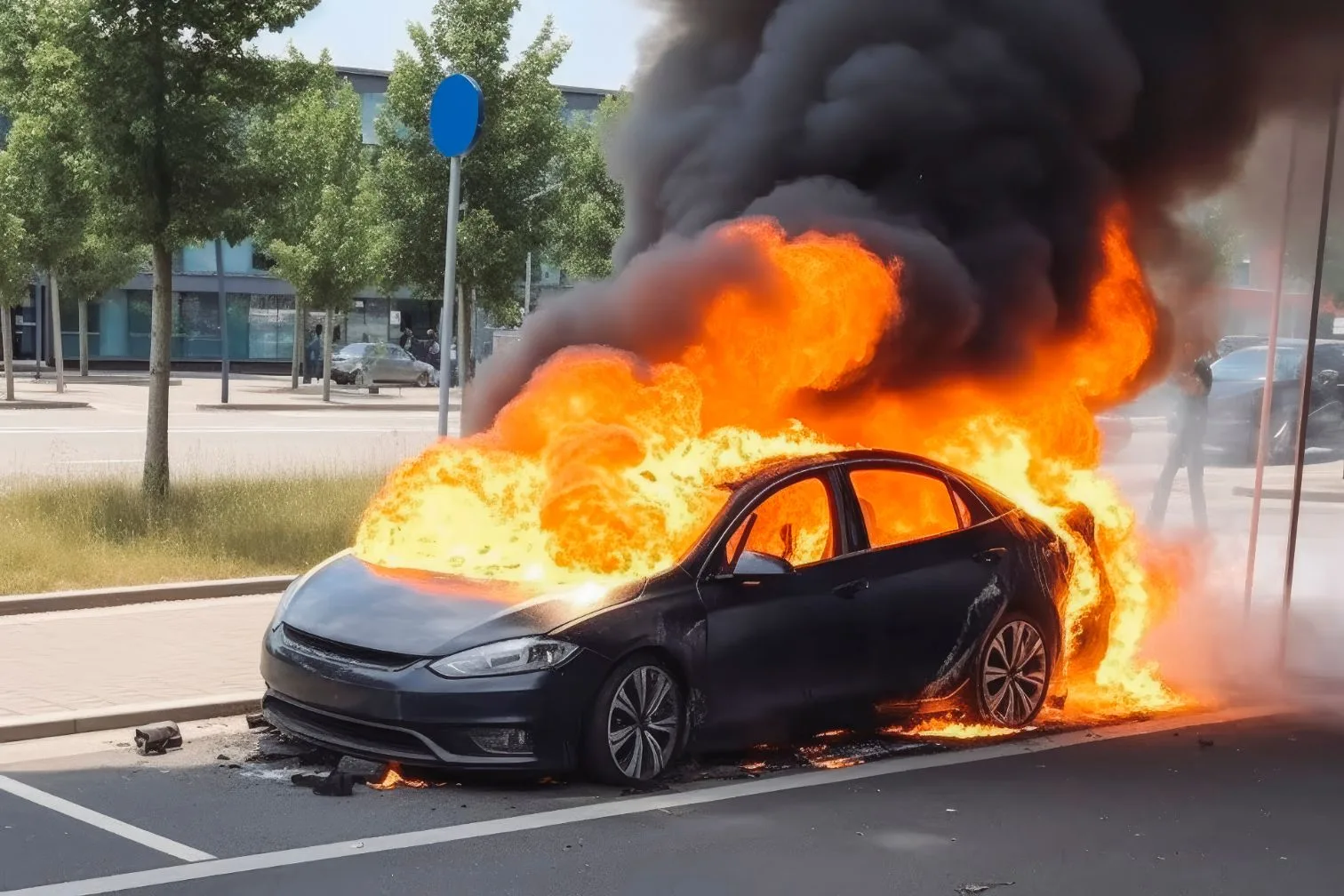
With So Many EVs Catching Fire in India, Better EV Chargers Are a Necessity. BLA Etech Steps Up with Internationally Certified, made for India-Ready Chargers
It’s no secret anymore: electric vehicles (EVs) are catching fire across India at an alarming rate. From two-wheelers exploding in parking lots to electric buses smouldering on highways, headlines are becoming disturbingly routine.
This is not an isolated issue of a bad battery or an unskilled rider. It’s a systemic flaw—a crack in the very ecosystem supporting the EV revolution in India.
At the heart of it lies a silent yet deadly culprit: substandard charging infrastructure.
Over the past two years, India has seen a surge in EV adoption. Sales are booming, driven by government incentives and the promise of a greener future.
But the infrastructure? It’s not keeping up. Shoddy chargers, incompatible voltage systems, zero climate consideration, and absolute chaos in service support are not just minor inconveniences. They’re lethal.
According to multiple reports, many EV fires are traced back to poor charging practices and unreliable chargers.
Most of these chargers lack certification, are often retrofitted in unhygienic environments, and fail to consider India’s harsh summers and monsoon seasons. Chargers overheat, cables melt, battery management systems go haywire, and before you know it, another EV is up in flames.
This is where BLA Etech steps in—not as another manufacturer pushing products, but as a safety-first technology company designing for India. With over 1100 successful installations, BLA Etech’s chargers aren’t just boxes that transfer electrons. They are sophisticated machines, built in one of India’s most advanced manufacturing facilities, engineered to thrive in the extremes of Indian weather.
More importantly, these chargers are ARAI, ICAT, and CE-certified. They don’t just meet Indian standards; they meet global ones.
That’s the bar BLA Etech is setting: if a charger isn’t safe in Berlin or Boston, it shouldn’t be sold in Bengaluru.
Most consumers are unfamiliar with the terms CE or ICAT.
However, the bottom line is that these certifications are earned, not purchased. They involve rigorous testing under stress conditions to validate everything from temperature control to electromagnetic interference. Without them, you’re gambling every time you plug in your EV.
In a country where regulatory enforcement is often lax and counterfeit products flood the market, international certifications act as your only true defence against disaster. BLA Etech didn’t just slap stickers on its products.
It earned every certificate by pushing its technology through some of the harshest tests globally available.
India’s EV boom isn’t just about personal vehicles. Delivery fleets, commercial transport, and government vehicles are all going electric. This amplifies the risk.
A fleet of e-rickshaws charging overnight in a single location with substandard infrastructure is a ticking time bomb.
This is where centralized, robust charging systems from players like BLA Etech can quite literally save lives.
Beyond products, BLA Etech also supports municipalities and fleet operators in planning and deploying smart EV infrastructure that scales safely.
India has no shortage of ambition when it comes to electrification.
But ambition without infrastructure is a recipe for disaster. A real EV ecosystem needs standardized connectors, certified chargers, trained installers, and weather-hardened tech. BLA Etech offers all of that—from design to installation to post-sale service.
Instead of treating EV charging as a commodity, it’s time we treat it like a utility: regulated, certified, and critical to national safety. And it needs to be built for the Indian context—not just imported with hope.
The fires aren’t random. They’re a signal. And BLA Etech is answering that signal with intent, engineering, and responsibility. The question isn’t whether EVs are the future—they are.
The question is: will we get there safely?
With BLA Etech, the answer is yes. Because in a country where EVs are catching fire, we don’t need more marketing gimmicks. We need chargers that work, last, and protect.
This post was last modified on May 30, 2025 12:11 am
In a major stride toward sustainable mobility, the Himachal Pradesh Police have incorporated six custom-modified Tata Curvv electric vehicles into…
In India, the automotive and transport industry is undergoing significant changes. This transformation isn't just about improving roads and infrastructure;…
Montra Electric, the clean mobility brand from the prestigious Murugappa Group, has launched the All-New Super Auto, a next-generation electric…
Union Minister Nitin Gadkari (Minister of Road Transport and Highways of India) has once again made a bold statement that’s got…
India’s electric four-wheeler (E4W) market slowed in September 2025, following a record-breaking August, with 15,038 units sold, representing an 18%…
India’s EV market hit 1,04,056 electric two-wheeler sales in September 2025. TVS, Bajaj, and Ather led the chart, while Ola…
This website uses cookies.